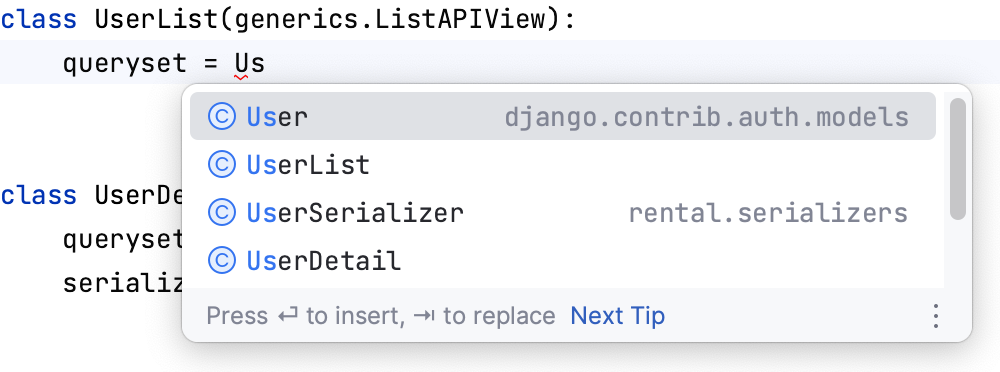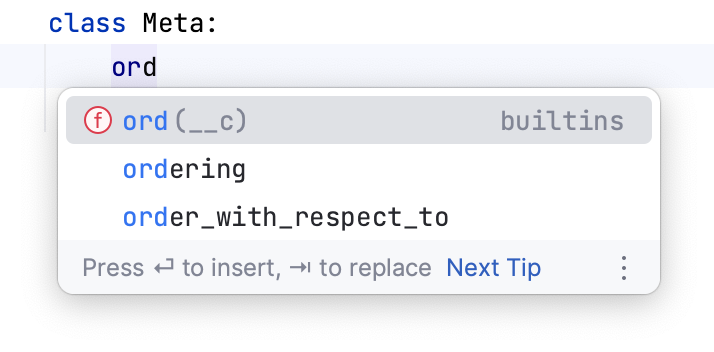Django support
Enable the Django plugin
This functionality relies on the Django plugin, which is bundled and enabled in PyCharm by default. If the relevant features aren't available, make sure that you didn't disable the plugin.
Press Ctrl+Alt+S to open settings and then select .
Open the Installed tab, find the Django plugin, and select the checkbox next to the plugin name.
Prerequisite
Django framework and the corresponding Python interpreter are properly installed on your machine.
Supported versions of Django and Python
PyCharm supports the latest Django versions. The corresponding Python versions depend on Django. See What Python version can I use with Django?
Django support
Django support in PyCharm includes:
Dedicated project type.
Ability to run the tasks of the manage.py utility.
Django templates support (syntax and error highlighting, code completion, navigation, completion for block names, resolve and completion for custom tags and filters, and quick documentation for tags and filters).
Ability to create templates from usage.
Ability to debug Django templates.
Live templates (snippets) for the quick development of Django templates.
Run/debug configuration for Django server.
Code insight support for Django ORM.
Code completion and resolve in
views.py and urls.py files:

Models:

Meta model options:

Configuration constants in the settings.py file

Class-based views. PyCharm provides Intention action to convert Django function-based generic views to class-based views.
Generating model dependency diagrams for Django models.
Enabling or disabling Django support
Django support for a Python project can be turned on or off by selecting/clearing the checkbox Enable Django support in the Django page.
To enable Django support, follow these steps:
Open the project Settings dialog (Ctrl+Alt+S) and navigate to the page.
Make sure that the checkbox Enable Django support is selected.
Apply changes (if any) and close the dialog.